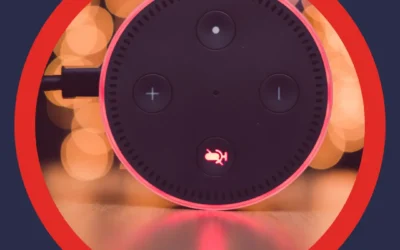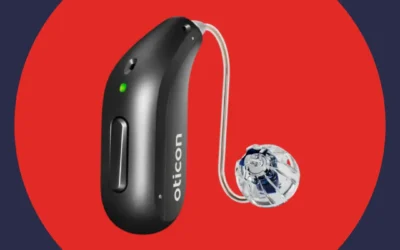This week focuses on raising awareness of tinnitus symptoms and their effects on daily life. Tinnitus, often described as ringing, buzzing, or hissing in the ears, affects millions worldwide. Understanding this condition can empower individuals to seek help and improve their quality of life. Despite its prevalence, tinnitus is still misunderstood, and many who suffer from it feel isolated. Tinnitus Awareness Week is an opportunity to shed light on the condition, provide valuable resources, and promote better understanding and treatment options.

What Is Tinnitus?
Tinnitus refers to the perception of sound without an external source. Common sounds include:
- Ringing
- Buzzing
- Hissing
- Clicking
- Roaring
Tinnitus can occur in one or both ears and varies in intensity and frequency. While it is often linked to hearing loss, other causes include injury, certain medications, and circulatory issues. The condition can affect people differently—some experience it intermittently, while others endure constant symptoms. In rare cases, tinnitus may pulsate in rhythm with the heartbeat, a form known as pulsatile tinnitus.
It is essential to understand that tinnitus is a symptom, not a condition. This distinction highlights the importance of identifying and addressing underlying causes. For many, seeking professional help from a hearing care provider is the first step toward relief.
Find out how addressing hearing loss may help older adults get better care.
Why Is Tinnitus Awareness Important?
Tinnitus Awareness Week highlights the importance of understanding the full impact of tinnitus, including its physical, cognitive, and emotional effects. Raising awareness ensures better support and more effective treatments for those affected.
1. Understanding Cognitive and Psychological Impacts
Tinnitus doesn’t only affect the ears—it influences the brain and mental health. Many individuals with tinnitus experience heightened stress, difficulty concentrating, and memory challenges. The constant noise can interrupt thought processes, making it harder to focus on tasks or engage in meaningful conversations. Over time, these cognitive challenges can lead to frustration and reduced productivity.
Psychologically, tinnitus often contributes to anxiety, depression, and a sense of isolation. The persistent sounds can feel overwhelming, causing emotional distress and negatively affecting overall well-being. Awareness campaigns help educate the public on these impacts and emphasize the importance of seeking professional help to address them.

2. Encouraging Research
Despite advancements in technology and treatment, tinnitus remains under-researched. Awareness campaigns can lead to increased funding for studies focusing on:
- How tinnitus alters brain activity.
- Developing non-invasive therapies, such as bimodal stimulation and repetitive transcranial magnetic stimulation (rTMS).
- Creating new medications targeting tinnitus-related neural pathways.
Increased research offers hope for more effective treatments and potential cures.
3. Reducing Stigma
Tinnitus is often misunderstood as a minor inconvenience rather than a significant health issue. This stigma discourages many from seeking help, leaving them to cope alone. Awareness campaigns create a supportive environment where individuals feel comfortable discussing their symptoms and seeking solutions. Open dialogue can reduce feelings of shame and empower those affected to take control of their condition.
4. Highlighting Prevalence and Diversity of Experiences
Tinnitus affects millions of people worldwide, including veterans, musicians, others who work noisy environments, and older adults. The experiences of tinnitus vary greatly—some may hear high-pitched ringing, while others experience low hums or pulsating beats. Awareness efforts ensure these diverse experiences are recognized, and individuals understand they are not alone in their struggle.
Learn more about occupational hearing loss.
5. Empowering Individuals with Resources
Tinnitus Awareness Week equips individuals with knowledge about symptoms, causes, and available treatments. Education empowers people to recognize their symptoms, seek professional guidance, and explore therapies that improve their quality of life. Access to reliable information and support networks helps reduce the overwhelming nature of tinnitus. Education empowers individuals to recognize symptoms, understand potential causes, and explore effective treatments. Tinnitus Awareness Week provides resources and tools to help those affected take control of their condition.
Steps to Manage Tinnitus
Managing tinnitus effectively requires a proactive approach. Consider the following steps:
1. Consult a Hearing Care Provider
Hearing care providers can evaluate symptoms, identify underlying causes, and recommend tailored treatments like hearing aids or sound therapy devices.
2. Protect Your Ears
Prevent further damage by avoiding loud environments. Use ear protection at concerts or while using noisy equipment. Keep your ears safe from infections and damage.
Find out how to avoid an infection like swimmer’s ear.

3. Use Sound Therapy
Background sounds, such as white noise or nature recordings, can mask tinnitus. Sound generators, smartphone apps, and specialized devices offer effective solutions.
4. Manage Stress
Stress intensifies tinnitus symptoms. Practice relaxation techniques like yoga, meditation, or deep breathing to reduce stress.
5. Establish a Sleep Routine
Lack of sleep worsens tinnitus. Create a calming bedtime environment and use sound therapy to improve sleep quality.
6. Stay Informed
Learning about tinnitus can alleviate anxiety. Awareness campaigns provide access to reliable information and resources.
Seeking Professional Help
Tinnitus may require medical evaluation, especially if symptoms persist or worsen. Seek professional help if you experience:
- Sudden hearing loss.
- Pulsating tinnitus in sync with your heartbeat.
- Tinnitus following head or neck injuries.
- Ear pain, drainage, or vertigo.
- Other hearing changes like diplacusis.
A hearing care provider can perform a thorough evaluation to determine the cause and recommend appropriate treatment.
Tinnitus Treatment Options
Managing tinnitus often involves multiple therapies tailored to individual needs. Common treatments include:
Hearing Aids
Hearing aids amplify external sounds, reducing the prominence of tinnitus. Modern devices often combine amplification with sound generation for added relief.
Sound Generators
These devices emit soothing sounds that mask tinnitus and promote relaxation. Options include wearable devices and smartphone apps.
Behavioral Therapy
Cognitive behavioral therapy (CBT) helps manage the emotional impact of tinnitus. It reduces stress and teaches coping strategies.
Tinnitus Retraining Therapy (TRT)
TRT combines counseling with sound therapy to retrain the brain’s response to tinnitus. Over time, individuals become less aware of the sounds.
Combination Devices
Devices that integrate hearing aids with sound generators provide dual benefits, enhancing hearing and masking tinnitus simultaneously.
The Importance of Tinnitus Awareness Week
1. Education and Resources
Tinnitus Awareness Week serves as a platform to educate the public about tinnitus. It provides resources for those affected and highlights the importance of early diagnosis.
2. Advocacy for Research
Raising awareness fosters advocacy for research initiatives. Organizations dedicated to tinnitus research rely on public support to secure funding and drive innovation.
3. Community Support
This week connects individuals with tinnitus to supportive communities. Sharing experiences reduces isolation and offers practical advice.
4. Global Collaboration
Tinnitus Awareness Week unites global efforts to address tinnitus. Collaborative research and shared resources accelerate progress toward effective treatments.
How to Support Tinnitus Awareness Week
1. Share Information
Educate friends and family about tinnitus. Use social media to share reliable resources and personal stories.
2. Advocate for Research Funding
Support organizations dedicated to tinnitus research. Donations and advocacy can drive meaningful advancements.
3. Participate in Events
Join awareness campaigns, fundraisers, or community events focused on tinnitus education and support.
4. Encourage Open Dialogue
Discuss tinnitus openly to reduce stigma and encourage others to seek help.
Contact American Hearing + Audiology
Take control of your tinnitus and regain the sounds of life you’ve been missing. At American Hearing + Audiology, we’re passionate about helping you uncover effective solutions tailored to your needs. From advanced hearing aids to innovative sound therapy, we offer cutting-edge options to reduce the impact of tinnitus.
Our compassionate team understands how tinnitus can affect your daily life. We’re here to provide guidance, support, and personalized care every step of the way. Whether you’re exploring treatment for the first time or seeking better ways to manage ongoing symptoms, we’ll work with you to create a plan that empowers you to thrive.
Your journey to relief starts today. Contact American Hearing + Audiology to schedule a consultation and discover how we can help you enjoy a better quality of life—one filled with comfort, clarity, and connection.



